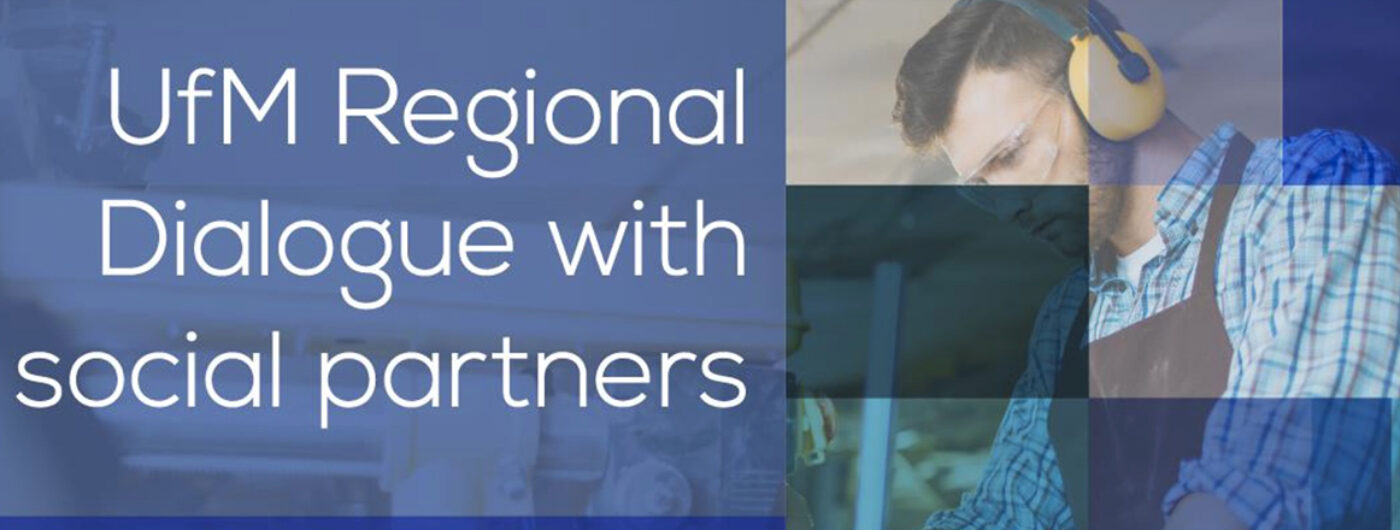
UfM Regional Dialogue with social partners: enhancing skills for better employability
8 July 2021. Social dialogue as an instrument of change has undergone several adjustments in the Mediterranean countries, leading its actors to be more and more involved in the social, economic, and environmental decision-making process.
This virtual discussion will provide an opportunity to build on past efforts towards more inclusive social policies in order to move a step further and start to envision concrete solutions to labor market issues through the window of skills policies in a social dialogue environment. The overall objective in terms of outcome will be to deliver solid recommendations that could feed into the UfM Ministerial Conference on Employment and Labour that is set to take place in 2022.
_Agenda_| Concept Note |Outcome document
Background information
Both Northern EU Member States and Southern and Eastern Mediterranean countries have been implementing dialogue strategies and policies that can take various forms in terms of actors involved and efficiency of the solutions proposed to specific labor market-related and societal issues, these processes being shaped by national contexts and social dialogue practices.
Moreover, social dialogue as a clearly established platform for labour-related discussions and collective bargaining purposes with official channels and recognized representatives tends to be given particular attention in times of uncertainty as social demands usually increase, seeking a more socially inclusive environment and secure livelihoods, and calling for substantial changes in economic growth and development models as a response to unprecedented challenges.
The Union for the Mediterranean Social Dialogue Forum held on 6-7 October 2020 reinforced the UfM’s commitment to addressing social development matters in a collective endeavor that pays particular attention to including social partners of the region. From a broader perspective, the Social Dialogue Forum was a legitimate continuation of the Jordan bipartite Declaration of 2016 and the Cascais Ministerial Conference on Employment and Labor held in April 2019, which resulted in determining four priority areas for efficient labor market policies in the region: employment creation and entrepreneurship, stakeholders and funding partners’ engagement, more inclusive labor markets, and skills and employability.
In this context, the Union for the Mediterranean partnered with BUSINESSMED, an organization that has long worked on the promotion of social dialogue, with the support of the European Commission, to improve the involvement of Social Dialogue when addressing the challenges that labour markets face in the Mediterranean region. As representatives of governments and employers in the region, both organizations have devoted increasing attention to social dialogue matters, along with their respective partners from intergovernmental organizations, civil society organizations, trade unions, local authorities and economic and social councils. The challenge being ultimately to be able to come up with suitable regional solutions relying on widespread buy in, in a post-pandemic context that is increasingly calling for more country-tailored policies.
